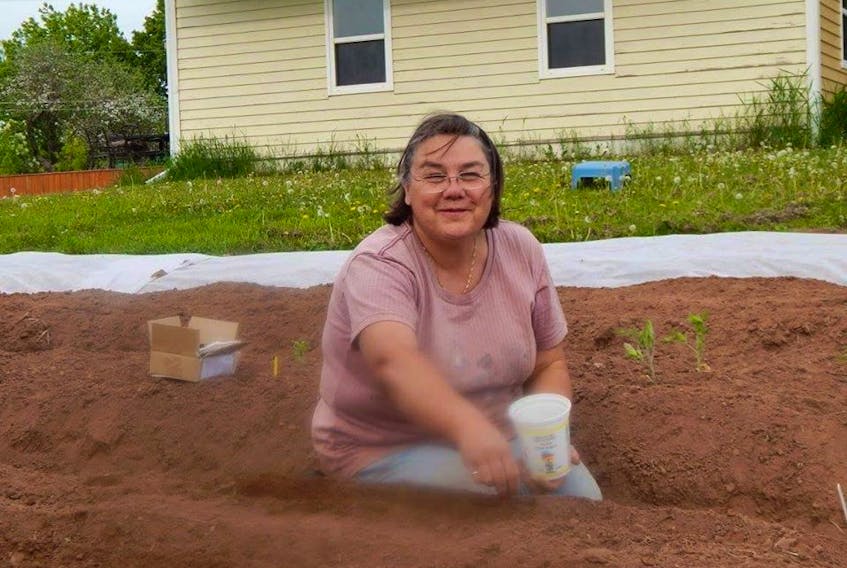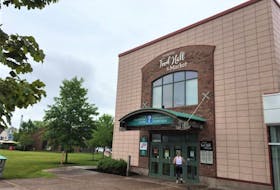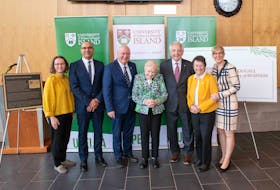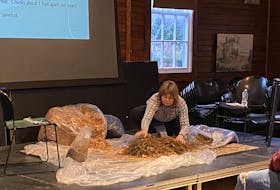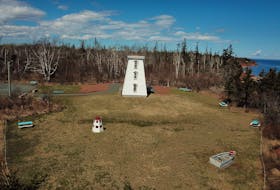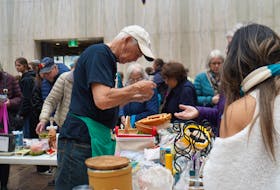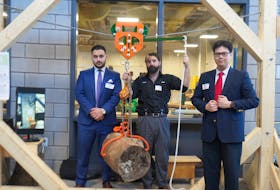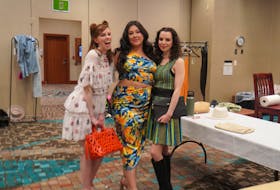A P.E.I. farm is helping secure global food supplies – one seed at a time.
Tina Davies has been producing seeds for four years on her family’s organic farm, Emmerdale Eden Farm in Summerside.
“We’ve got locally adapted seeds. They will grow well here,” said Davies. “Seeds gradually adapt over time to soils and weather conditions and also to no pesticides and chemical fertilizers and to the way you farm. With organic agriculture, a lot of what we do is by hand, and so they have to adapt. Those that do adapt and do well in that sort of climate, they get saved. They become very resilient.”

Considering going to seed?
With the Summerside Farmers’ Market closed, market mainstay Tina Davies from Emmerdale Eden Farms said she has been flooded with calls from people wanting to grow their own food. Some customers are interested in saving their seeds for the next season.
- For beginner seed-savers, Davies suggests peas, beans or tomatoes. The seeds inside should be hard and fairly dry. Once they’re at this stage, take them in, take them out of the shells and store them until next year. Tomatoes are a little trickier, but there are lots of online resources.
- When planning to save seeds, plant just one kind of peas, beans or tomatoes or, if planting more than one variety, span them around 50 feet apart to prevent cross-pollination.
- Some provincial libraries have seed banks and hold workshops.
- “The more people who know about it, then we have more chance in the future to have our own food supply,” said Davies.
- To find more about Emmerdale Eden Farms head to: emmerdaleedenfarm.com
SeedChange, formerly USC Canada, has helped Davies get started and become proficient in seed-saving techniques.
“It’s a skill that people really need to re-learn,” said Davies.
SeedChange, a not-for profit that supports on-farm research, farmer education and policy change, has provided lots of training and workshops to support seed-savers like Davies.
“There’s a lot involved in how to properly save seeds,” she said. “People have been saving seeds since the beginning of agriculture, but in the last so many years, big seed companies have taken over… We shouldn’t rely on a big food system to provide us with food."
Jane Rabinowicz, executive director of SeedChange, has noticed people are aware of the food system in totally new ways, now that the pandemic has disrupted the supply chain.
“We’ve really seen some of the holes in the system and the importance of a local, resilient food supply – and that starts with seed,” said Rabinowicz, adding everything they’re learning in the pandemic will help agriculture cope with climate change
This summer, SeedChange is sending locally adapted vegetable seeds to farmers. They will save the seeds from the plants they grow, keep a portion for themselves and send a portion back to SeedChange, which will hold some for safekeeping and continue to share the rest.
Locally grown and locally adapted seed is really important for food security, said Rabinowicz.
“The point is to build up a made-in-Canada locally-adapted or regionally-adapted seed supply,” said Rabinowicz. “When you plant seed and you cultivate your crops and then you save your seed at the end of the season, and you do that year after year after year, you’re adapting that crop to the local environment and it’s going to perform better in that local environment.”
Quick tips
Jane Rabinowicz from SeedChange has a few tips for getting started:
- Grow what you love to eat
- Be humble
- Start simple
- Don’t be discouraged
- To find seeds online, visit weseedchange.org/local-seeds


